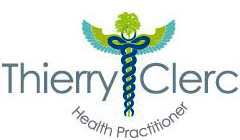This article on detoxification and the functions of the liver was written for a health store in Cambridge. It is re-published on this website. Thierry Clerc practices in Cambridge (UK) as a clinical homeopath and a nutritionist. He is a regular contributor of several national and international health magazines.
Detox has become popular and there are a lot of “do it yourself” programmes. However, a detox should not be tried without a clear investigation and case analysis. If the body is too weak, this can lead to more problems than it may solve. Also, it is key to know what to detox: is it simply about re-balancing a poor diet, about assisting with over-indulgence of alcohol, or for the misuse or over-use of medical drugs or of cigarettes.
To do a good job, you need to know what to hunt for. You would not use the same tools if you go fishing for sharks or for crayfish. This is the same for your body: a detox has to be targeted.
Role of the liver in detox
While the liver is subject to viral infections and long term inflammation or damage, more subtle states of malfunction occur in the great majority of people. In fact, if the body could ever be said to have a “design flaw”, it would be the liver.
This extra-ordinary organ is not only the metabolic factory and warehouse of the body, it is also its main waste disposal unit. In most people, the liver becomes eventually overloaded and sluggish in its many functions. Crucial absorption of vitamins, minerals, fat and protein as well as the processing of sugar and hormonal metabolism become affected.
Liver health is a key factor influencing our wellbeing. It plays a key role in a wide range of chronic disorders. For example, the liver is particularly involved with skin diseases such as psoriasis and hormonal problems, like PMS, menopause, menstrual irregularities. Since all toxins in the digestive system must be neutralised by the liver, poor diet and intestinal flora imbalance are a common cause of liver debility.
Role of the lymphatic system
The primary function of the lymphatic system is to transport lymph, a liquid fluid containing white blood cells that helps rid the body of toxins, waste and other unwanted materials. The lymphatic system, has a number of functions, including the removal of waste fluid, and also bring any unwanted system to the blood so that it can be filtered though via the liver.
The lymphatic system should always be properly nourished and supported during a detoxification process. This is rarely achieved by “do it yourself” detox, and is the main reason why people main really suffer during their detox.
Targeted Detoxification
Traditional toxins, like bacteria, viruses, alcohol and cigarettes may respond well to over-the-shelf detox programmes. This is because humans have been exposed to these toxins for many generations, and the body can eliminate them efficiently with a standard herbal or nutritional support.
However, detox for medical drugs and heavy metals is not achieved by over-the-shelf detox programmes in my experience. This is the same issue for more recent recreational drugs like amphetamine or cocaine.
There are several reasons for this:
First, for any such chemical addition, including conventional medications taken for a long time, there is a psychological factor that needs to be addressed and supported by a therapist.
Second, drugs are designed to have a chemical effect on the body, and for this reason, they are made difficult for the body to eliminate. This makes “detoxification” tricky. and dugs can sit for a long time in the body. In 2000, a medical study was conducted in Germany to check the state of the liver in deceased people. The most common drug found was DDT, a pesticide banned in that country in the late 1960’s.
Third, we live in a drug-ridden society. The Westerns culture relies on chemical drugs for almost any ailment. Many young children are now routinely prescribed painkillers and antibiotics at a young age. While paracetamol is not advised for young children in the US, it is the number 1 ingredient of Calpol, a medication routinely given as first aid to children in the UK. Official studies show that there are over 110,000 deaths every year in Europe due to prescribed drugs. Paracetamol and other painkillers are the first cause of liver failure, well ahead of alcohol.
However, in spite of all their potential toxicity, drugs are required at times. Homeopathy does not interfere with the effectiveness of such chemical drugs, but helps reduce their toxicity by supporting the body. Homeopathy, alongside nutrition and supplements is also extremely effective at helping the body get rid of unwanted stored drugs.
Thierry Clerc, MARH, RHom, MSc
Registered Health Practitioner
Clinical Homeopathy, Bioresonance, Nutrition & Allergy

